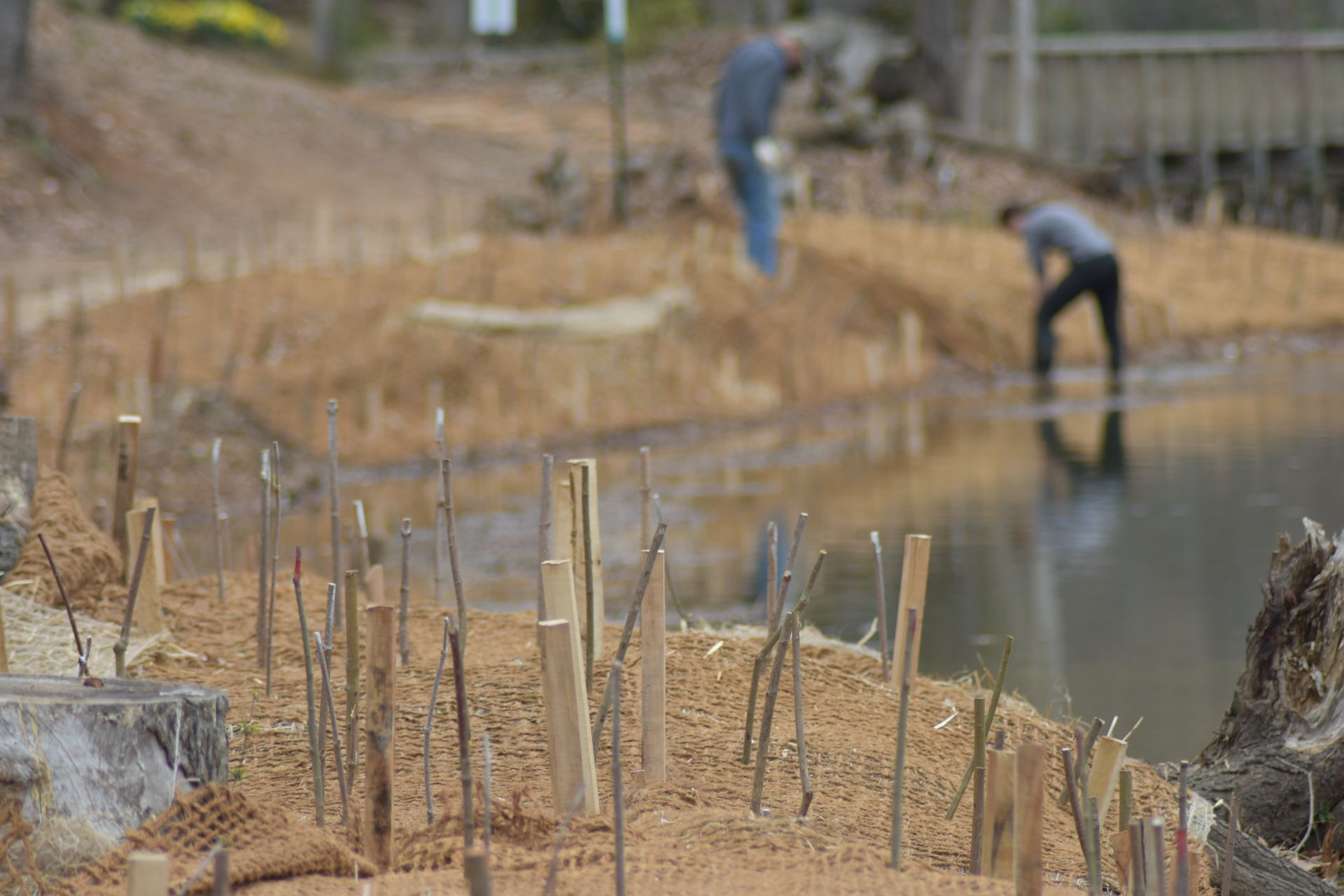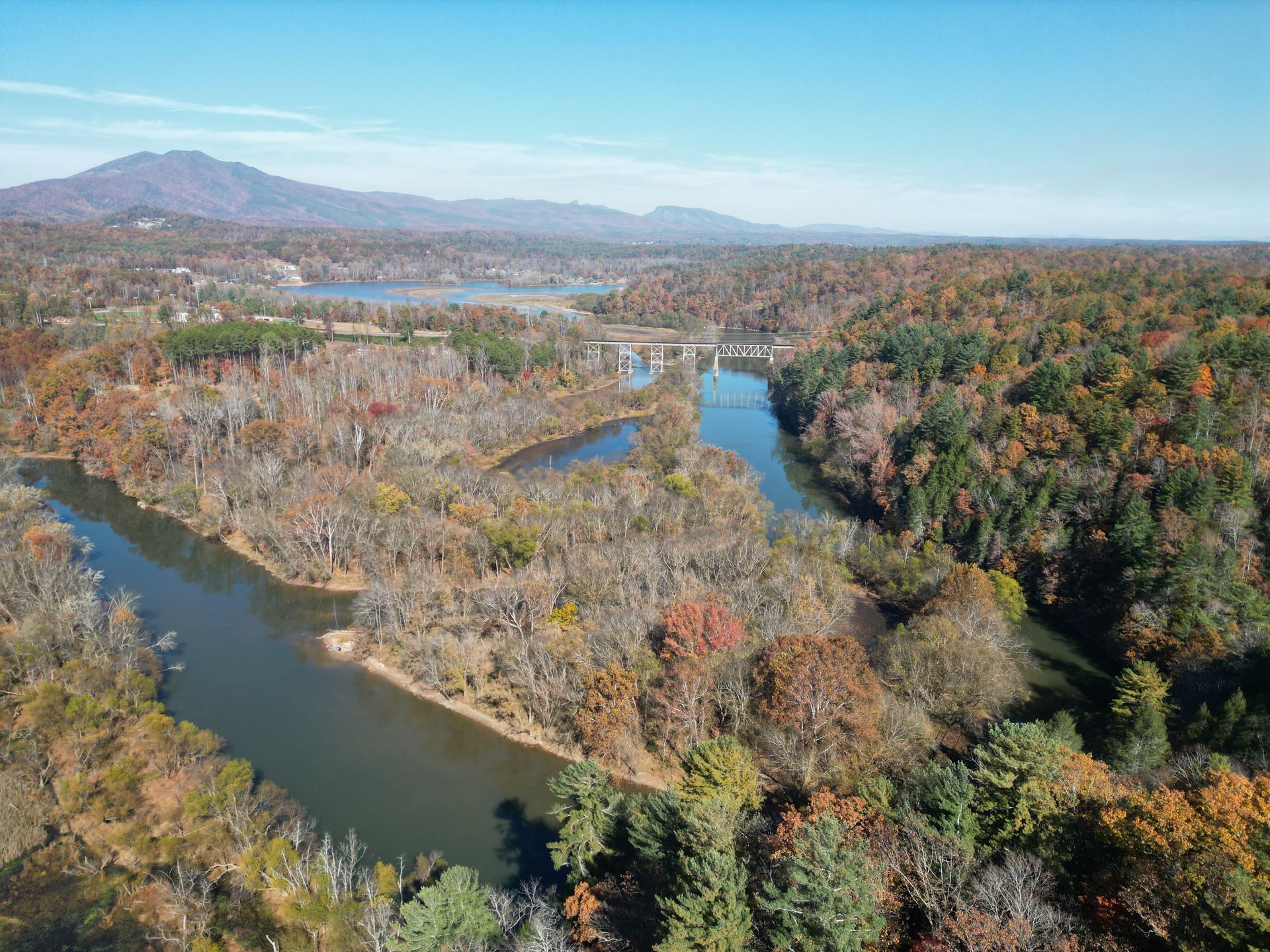Could beavers help restore our streams?
Could beavers help restore our streams?
There is a new growing trend in using beavers to restore streams.
That’s right, we are looking to the largest rodent in North America to help save our streams.
Once widespread across most of North America and numbering in the ~250,000,000 range, beavers once dominated riverine landscapes. Beavers were even common in the Catawba River Basin. An early European explorer marveled at the presence of Beaver on the landscape, as stated by John Lawson during the 1700s on his route through the Carolinas including parts of the Catawba Basin, during which he wrote “Bevers are very numerous in Carolina, their being abundance of their Dams in all Parts of the Country, where I have travel'd.”
So where did they all go?
Well, due to a growing fashion trend in the middle 1800s, beaver pelts became in high demand for use as hats. Their naturally water repellant coat made for an excellent rain resistant material.
Not only were beavers killed around this time for their coats, but much of our agriculture practices at that point involved draining wetlands and removing beavers in order to take advantage of the fertile floodplain soils. These activities resulted in the beaver being virtually extirpated from most of its range and the last beaver in North Carolina was trapped at the start of the 20th century.
Efforts were made to repopulate areas and went as far as parachuting beaver via plane in some areas. Repopulation efforts did prove somewhat successful aided by the dying out of the fur trade. However beaver populations are nowhere near their historic numbers, with estimates closer to 15,000,000 in the United States today.
What do beavers have to do with streams?
Well, as it turns out beavers play a significant role in the health of our river systems. Emerging research in the western United States involving creating “fake” beaver dams has allowed beavers to recolonize streams, bringing along their benefits. Beavers are proving to play a vital role with many of the challenges the arid west faces. Their ponds contribute to slowing down snow runoff and increasing ground water infiltration resulting in wetter areas that have been able to make streams that used to run dry full of water year around. The ponds they create also have contributed to fire resiliency by helping create a giant wet sponge that is difficult for fires to ignite. The habitat beavers create also allows for pollutants to be filtered and streams to access their floodplains, reducing bank erosion and sedimentation. Lastly, their ponds have also been linked to carbon sequestration making beavers a potential triple threat for fighting climate change and its impacts.
As the use of beavers to restore streams has grown out west, the question has been raised as to what their role is in the quite different environment of the Southeast.
Can we see the same benefits of pollution filtration and floodplain reconnection? Will the beavers find these human-made beaver dams and become restoration project managers?
These are the exact questions Catawba Riverkeeper is hoping to help answer by piloting one of the few Beaver Dam Analog (BDA) projects to take place in the entire Southeast and we need your help!
We will be installing a series of Beaver Dam Analogs on property conserved by Foothills Conservancy. These installations will be followed by monitoring from students at the University of North Carolina at Charlotte, Appalachian State University, and Montreat College. With our partners, we hope to closely monitor the effects of the Beaver Dam Analogs to get a better idea of how useful beavers might be in the Southeast for stream restoration.
With typical stream restoration costing upwards of millions of dollars, the potential cost savings through BDAs are significant. A mile of Beaver Dam Analogs offers a relatively cheap alternative to restoration at around a few thousands of dollars a mile.
Much remains to be learned about the abilities of beavers to restore streams, but with hundreds of miles of streams that need to be restored, all options must be explored.
This potential new tool was made possible by a successful North Carolina Land and Water Fund restoration grant and permits obtained by the Army Corp of Engineers and the North Carolina Department of Environmental Quality.
We will have a public volunteer day on 3/4 for this unique opportunity to think, and even act, like a beaver to help restore a stream. Sign up at our volunteer portal for updates and notifications about other ways you can get involved to help protect our rivers.







